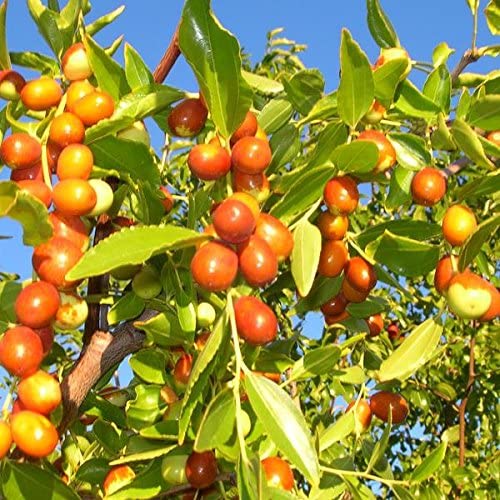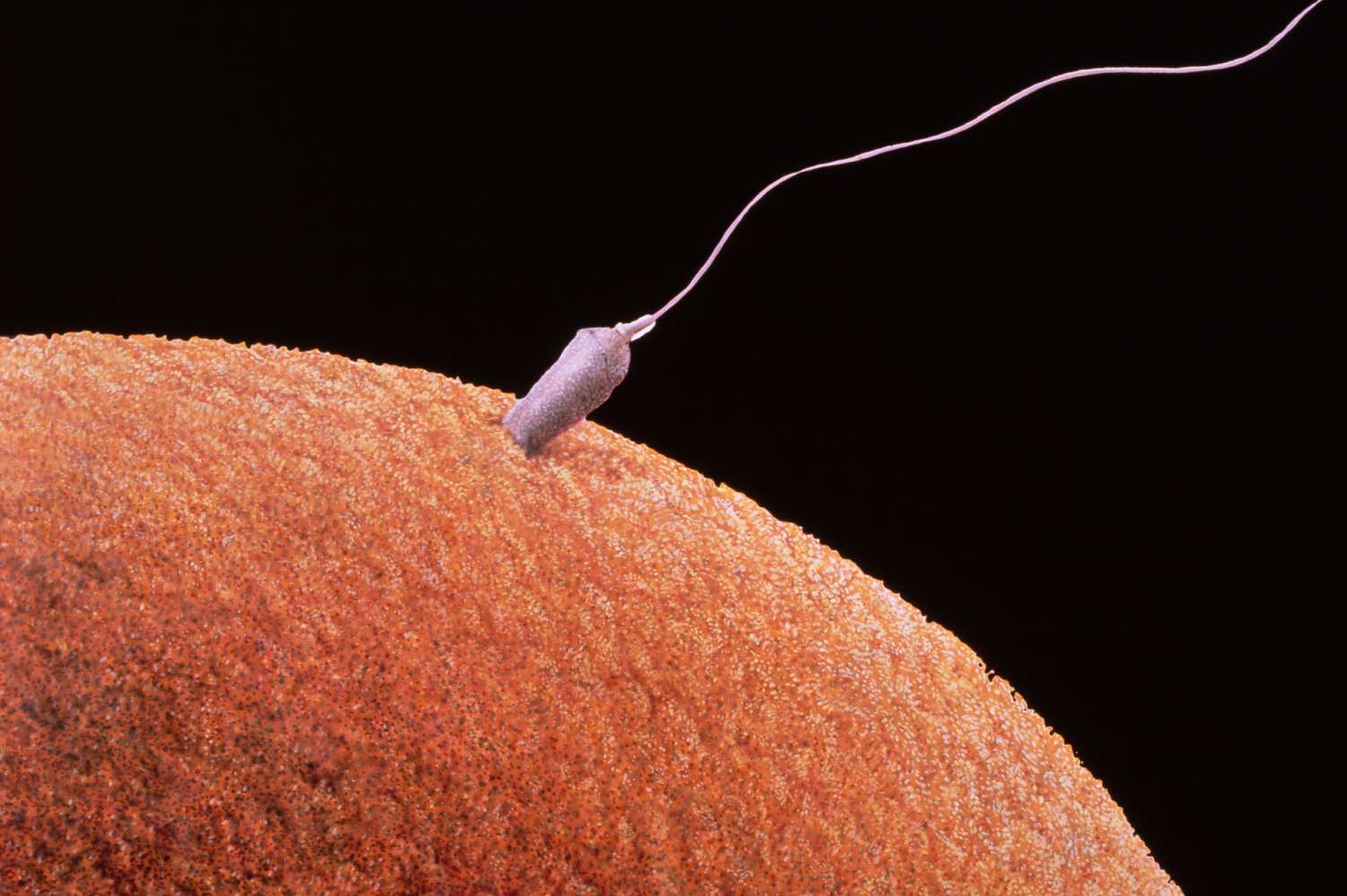Health
How Incentives Can Drive Positive Health Outcomes

The use of financial incentives to change health-related behaviors is becoming increasingly common. However, the results of incentive schemes in the past have been mixed.
One reason may be that the underlying psychology behind incentive programs still needs to be fully understood. For example, a lottery-based financial incentive scheme can encourage people to attend eye screening appointments but only increases vaccination rates if the incentive is immediate.
Motivate Patients
Incentives are often a key driver for improving patient behaviors and healthcare outcomes. Patients may be offered incentives to sign up for a wellness program or participate in a vaccination campaign. Employers may provide employees with cash rewards to encourage healthy eating and exercise. Many ‘know your HIV’ programs in developing countries offer incentives to ensure people pick up their results.
Payment per achievement, in the form of payments to physicians for performing certain procedures or achieving certain quality metrics, is one method healthcare systems use to motivate providers to deliver value-based care.
But how much do these incentives work? Studies have shown that incentives’ effectiveness depends on the reward behavior and subtle design details, such as how an incentive is delivered or framed. Using behavioral science to drive these programs could yield better results and cost savings. For example, one controlled study found that a targeted, micro-incentive approach generated eight dollars in cost savings for every dollar spent on the program.
Encourage Adherence
Incentives can be used to encourage people to stick with their health goals. This can be done through various approaches, including price signals such as sin taxes or subsidies and commitment devices such as public contracts where individuals agree to change their behavior for a set period in return for additional benefits.
Several studies have reported that incentives informed by behavioral economics can improve adherence. However, these incentives have rarely been tested among youth living with HIV despite the high need for enhanced compliance.
One study implementing an incentive-based model to increase adherence reported that the program improved viral load suppression outcomes. The study also included several complementary measures, such as regular client-centered adherence meetings, monthly adherence audits, and feedback reports. Incentive magnitudes vary widely across studies, with payments ranging from annual provider income. However, most studies need to report detailed information regarding the amount of incentives and how they are paid.
Encourage Routine Check-Ups
Incentives are one route to encouraging routine check-ups and other trends, such as value-driven purchasing, patient-centered care and clinical performance management. But it’s important to consider how incentives are framed and designed. Using price signals to encourage health behaviors can be successful; for example, increasing the cost of tobacco and alcohol has been shown to reduce consumption.
However, introducing rewards can also backfire. For example, freebies like doughnuts or movie tickets can discourage people from getting the COVID-19 vaccine.
Incentives can be offered to individuals, groups of providers or even entire health systems. They can be tied to individual, group, or network performance markers or even at the practice or integrated delivery system level. The size of these incentives varies widely, and their frequency can be monthly, quarterly or annually. Moreover, linking incentives to health outcomes or measures can be demotivating because improvements tend to plateau over time. Instead, focusing on measurable improvements in quality or cost may be more effective.
Encourage Self-Care
Incentives are often viewed as encouraging healthy behavior and reducing overall healthcare costs. However, supporters and critics disagree on whether incentives are appropriate and effective. Supporters generally believe that people should be encouraged where possible into behaviors that promote improved health outcomes and that appropriately targeted incentive schemes can provide a form of symmetric or libertarian paternalism that steers people toward better choices without necessarily limiting what those choices are.
For example, one study randomly assigned participants to receive0 cash incentive for visiting their primary care provider (PCP) after enrolling in a community-based primary care program. These low-income patients were newly eligible for free or low-cost health insurance because the state had not relaxed its stringent Medicaid eligibility requirements.
The researchers found that a small financial incentive increased the number of first-time visits relative to the non-incentivized group. They also found that incentives framed as gains were more effective than those framed as losses.
Health
7 Benefits of jujube seeds and side effects

Table of Contents
Health
Benefits of coconut water in pregnancy

Discover the benefits of coconut water in pregnancy.
Coconut water is a clear, sweet, energizing isotonic drink that helps your body replenish lost fluids. Also known as Nariyal Pani and Elaneer in India, it is known for its versatility and countless nutritional benefits.
IS IT SAFE TO CONSUME COCONUT WATER DURING PREGNANCY?
Yes, it is safe to drink coconut water, but in moderation, as it contains natural vitamins and minerals.
Having coconut water in the first trimester helps curb dehydration resulting from morning sickness. It’s also good for heartburn and constipation, common symptoms of pregnancy.
You can drink coconut water at any time, but the best time is early in the morning. It is healthier, as the electrolytes and nutrients can be easily absorbed when the stomach is empty.
The nutritional benefits present in a cup of coconut water include:
•Calories 46
•Sodium 252mg
•600mg potassium
•Carbs 8.9 grams
•Dietary fiber 2.6 grams
•Sugars 6.26 grams
•Calcium 6%
Benefits of coconut water in pregnancy
You can reap its benefits only when you consume fresh water, as it begins to ferment when left open and exposed to air.
1. NATURAL DIURETIC:
During pregnancy, uric acid levels should be normal in your body system. Coconut water is a diuretic and increases the need to urinate due to the presence of potassium, magnesium, and minerals.
They help eliminate toxins and cleanse the urinary tract. Thus, it improves kidney function and prevents kidney stones and infections. It also prevents urinary tract infections, which reduces the chances of preterm labor.
2. OFFERS ESSENTIAL ELECTROLYTES:
The need for electrolytes increases during pregnancy because conditions like morning sickness, nausea, and diarrhea dehydrate the body. Coconut water supplies all five essential electrolytes: minerals, sodium, calcium, potassium, and phosphorus, which calm the body and provide energy.
These electrolytes transmit electrical charges in your body and aid in muscle function. They also help maintain your body’s pH levels and control blood pressure levels. It is known to have cooling properties, which prevent conditions such as bilious fever and vomiting.
3. RELIEVES HEARTBURN AND CONSTIPATION:
Hormonal changes during pregnancy lead to various problems like heartburn, constipation, and indigestion. The rich content of dietary fiber in coconut water strengthens the digestive system, improves digestion, regulates pH levels, and prevents constipation.
Ayurveda considers young coconut water to be an excellent laxative. Improves metabolism and detoxifies the body. Coconut water is a natural acid neutralizer and thus prevents heartburn.
4. TREAT INFECTIONS:
Coconut water is rich in vitamins, essential minerals, and antioxidants, which boost your immune levels, providing resistance to infections. It contains lauric acid, a medium-chain fatty acid responsible for the production of a powerful antiviral monolaurin, Michelle-Lee Young writes in the book “Two Trees and Twelve Fruits That Will Change Your Life Forever.” Lauric is a disease-fighting acid that kills harmful bacteria and infections like the flu, and HIV, and retains good bacteria.
5. IMPROVES HEART HEALTH:
Low electrolyte level increases blood pressure. Drinking coconut water improves levels of potassium, magnesium, and lauric acid, which help regulate blood pressure. Improves good cholesterol and fights bad cholesterol.
The vitamins, essential proteins, and electrolytes in coconut water control sugar levels, and blood pressure levels, and improve circulation. A glass of coconut water every day is particularly helpful in the last trimester when there is increasing stress from labor that can increase your blood pressure.
6. MAINTAINS A HEALTHY WEIGHT:
Coconut water is fat-free and low in calories. As pregnancy adds extra weight to your body, coconut water prevents fat accumulation by removing bad cholesterol. It is an excellent replacement for sugary drinks and helps both the mother and the growing fetus to be healthy and fit.
7. NATURAL DRINK:
Coconut water is a tasty natural drink. It has no artificial flavors or harmful components. It is safe for you and your growing fetus as none of its components affect your health.
8. ENERGIZE AFTER TRAINING:
Coconut water is a natural isotonic drink, which helps you gain energy when suffering from dehydration, fatigue, and exhaustion. It is a great revitalizer
. If you exercise regularly to stay fit and strengthen your pelvic muscles, you can opt for coconut water as an energy drink. Hydration also improves skin elasticity, limiting the stretch marks that develop during pregnancy.
9. LOW SUGAR CONTENT:
Excessive sugar intake can lead to an increase in overall blood sugar levels. Coconut water has less sugar than other sports and energy drinks. You won’t gain pregnancy weight, and a diet low in simple sugars will reduce your risk of getting gestational diabetes.
10. ACCELERATES THE GROWTH OF THE FETUS:
Coconut water offers all the nutrients to the mother, essential to maintain and improve her health. Thus, it improves the health, growth, and proper nutrition of the unborn baby.
11. IMPROVES AMNIOTIC FLUID LEVELS:
Drinking coconut water improves the overall health and environment of your growing fetus. Coconut water taken especially in the third trimester increases amniotic fluid levels and improves blood volume and circulation.
ARE THERE ANY SIDE EFFECTS OF COCONUT WATER DURING PREGNANCY?
There is no evidence that coconut water has adverse effects on pregnancy. Like any other fruit or vegetable juice, it also appears to be safe. But there are two things to keep in mind:
•Coconut milk contains sodium, which may not be the right choice for pregnant women with preeclampsia.
•Ripe coconut water can cause constipation.
HOW MUCH COCONUT WATER CAN A PREGNANT WOMAN HAVE?
Moderation is always the key when it comes to eating a healthy diet. You can drink up to a glass of coconut water a day.
Consume the water soon after opening, as a fresh one will contain rich nutrients. Use a clean straw or pour it into a glass and drink.
It is always good to prefer natural coconut water to canned or bottled.
Do not consume coconut water if you react or do not like its taste.
HOW TO SELECT THE CORRECT COCONUT?
To enjoy the various benefits of coconut water, you need to know how to select them properly. These tips can help you buy fresh and tender coconut.
A fresh coconut will be light and sweet and will not contain coconut meat, the white, meaty, tender substance. A ripe or stale one will taste sour.
Selection: Choose medium-sized, clean, green walnuts, as they contain large amounts of water. Don’t choose coconuts that have hard brown shells and gray patches as they indicate ripe nuts.
Water: Shake the coconut vigorously near your ear to check for water. Select the ones that make a good splashing sound. A fresh coconut will contain almost a cup of water.
If you want to store coconuts at home, keep them in a cool place.
BENEFITS OF COCONUT MEAT DURING PREGNANCY:
1. GENERATION OF BREAST MILK:
Regular consumption of coconut meat during pregnancy improves the supply of breast milk after childbirth. Your baby will receive nutritious and rich breast milk. Also, coconut oil helps in the generation of breast milk.
It is also good during the lactation phase as it contains lauric and capric acids. These acids have antiviral, antibacterial, and parasiticidal effects, which protect the baby from diseases.
2. IMPROVES BLOOD CIRCULATION:
Blood volume doubles during pregnancy, causing swelling of the feet and legs. Poor blood circulation aggravates the condition. Coconut consumption improves blood circulation and prevents swelling and pain in the legs.
3. HELPS DIGESTION:
Consuming coconut meat and water prevents constipation as tender coconut meat acts as an excellent laxative. It is one of the best benefits of consuming a coconut in any form during pregnancy.
4. BETTER SLEEP:
Having coconut in combination with poppy seeds and ghee will improve your sleep cycle.
5. INCREASES METABOLISM:
When the coconut is mixed with spices, it helps boost metabolic activities in pregnant women.
COCONUT MILK DURING PREGNANCY:
Coconut milk is a thick, milky liquid obtained by grinding grated coconut meat. It is also an essential ingredient in many foods, especially Southeast Asian dishes.
Coconut can be consumed in any form due to its amazing health benefits. Coconut milk helps increase body fuel. It is completely safe to drink unless you are allergic to it.
BENEFITS OF COCONUT MILK DURING PREGNANCY:
1. ENHANCE IMMUNITY:
Coconut milk contains lauric acid, which is an antibacterial and antiviral fat, useful for pregnant women. This type of fat helps improve the immune system, according to the book “Coconut Oil and the Immune System” by Sherri Neal. The long-chain fatty acids straighten the blood vessels and reduce any blockages in the heart, thus improving the condition of the heart as well.
2. OTHER BENEFITS INCLUDE:
•It contains good amounts of iron, which can treat anemia.
•Improves digestive problems.
•It offers relaxation to the muscles and the nervous system.
•Controls blood sugar levels and blood pressure
•Relieves joint pain and scratches
•Makes your body fit and helps you lose weight
HOW TO PREPARE FRESH COCONUT MILK?
It is advisable to make coconut milk at home instead of opting for a packaged one.
Grate a whole coconut and add a cup and a half of hot water.
Let the mixture cool to room temperature.
Once the mixture cools down, strain to get the milk.
Coconut milk taken directly from fresh coconuts will contain approximately 450 calories and 50 g of fat. A cup of coconut milk (approximately 240 g) has the following nutritional values:
•Calories 550
•Fats 50.2gm (all types of fats)
•Cholesterol 0
•Sodium 40gm
•Carbohydrates 14gm (in 250gm of milk)
•Proteins 6gm
•Vitamin C 11%
•Iron 22%
•Calcium 4%
IS CANNED COCONUT MILK GOOD DURING PREGNANCY?
It’s safe to have canned coconut milk during pregnancy, but you need to make sure the can isn’t corroded, rusted, expired, or stored at dangerous temperatures.
Coconut milk contains considerable amounts of saturated fat, that is, 3 g in a tablespoon. Eating too much-saturated fat will increase the levels of good and bad cholesterol in the body. In the case of canned milk, you must take into account your level of consumption, since you should not exceed your daily requirement.
In addition to the above, other reasons why you may not choose canned coconut milk are:
1. BISPHENOL A (BPA):
It is a chemical that is typically used in the lining of cans used for packaged foods. This BPA can gradually leach into acidic, fatty, or salty foods like coconut milk, vegetables, tomatoes, and soups. One study claims that there is a relationship between high levels of BPA in mothers and neurobehavioral problems in babies.
2. GUAR GUM:
Guar gum is an additive present in canned coconut milk. It is a galactomannan, a polysaccharide, and is primarily a ground endosperm of guar beans.
There have been complaints such as severe abdominal cramps, indigestion, flatulence, and diarrhea, as beans are difficult to digest. In a clinical experiment, patients with intestinal problems showed improvement when they stopped using canned coconut milk in their diet.
3. FRUCTOSE MALABSORPTION:
It is a digestive disease characterized by impaired transport of fructose (a simple sugar found in fruits, vegetables, and honey) through the small intestine. Increased fructose levels in the gut cause bacterial overgrowth.
Therefore, it reduces the absorption of water in the intestine. Pregnant women with inflammatory bowel disease (IBD) and irritable bowel syndrome (IBS) are highly affected by fructose malabsorption.
According to nutrition data, coconut milk contains sugar, including fructose. Therefore, it should be avoided by those affected by IBD and IBS disorders.
Health
Disadvantages of miscegenation reproduction

Table of Contents
-

 Food1 year ago
Food1 year ago10 + Benefits of carrot juice and side effects
-

 Benefits4 months ago
Benefits4 months agoThe Benefits of Joining Gym Lumolog – Improve Your Fitness & Health
-

 Health1 year ago
Health1 year ago50 Super Healthy (And Very Often Cheap) Foods
-

 Health1 year ago
Health1 year ago5 Shocking health benefits of kinkeliba and side effects
-

 Food1 year ago
Food1 year ago8 shocking benefits of leek juice and side effects
-

 Health1 year ago
Health1 year agoBenefits of guava leaves Sensually
-

 Weight Loss1 year ago
Weight Loss1 year agoChaz Bono weight loss secret
-

 Health1 year ago
Health1 year ago13 shocking health benefits of Thai eggplant
